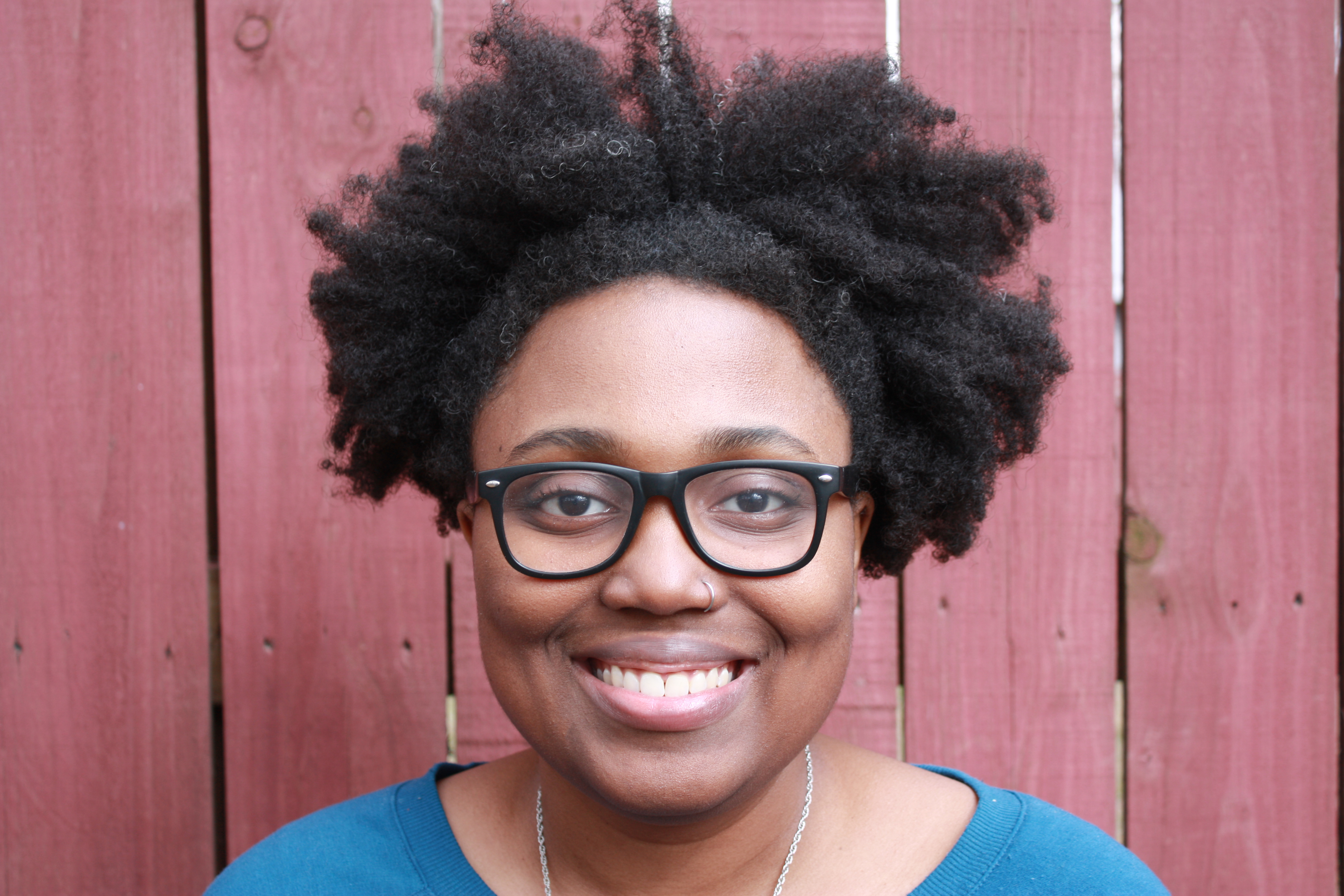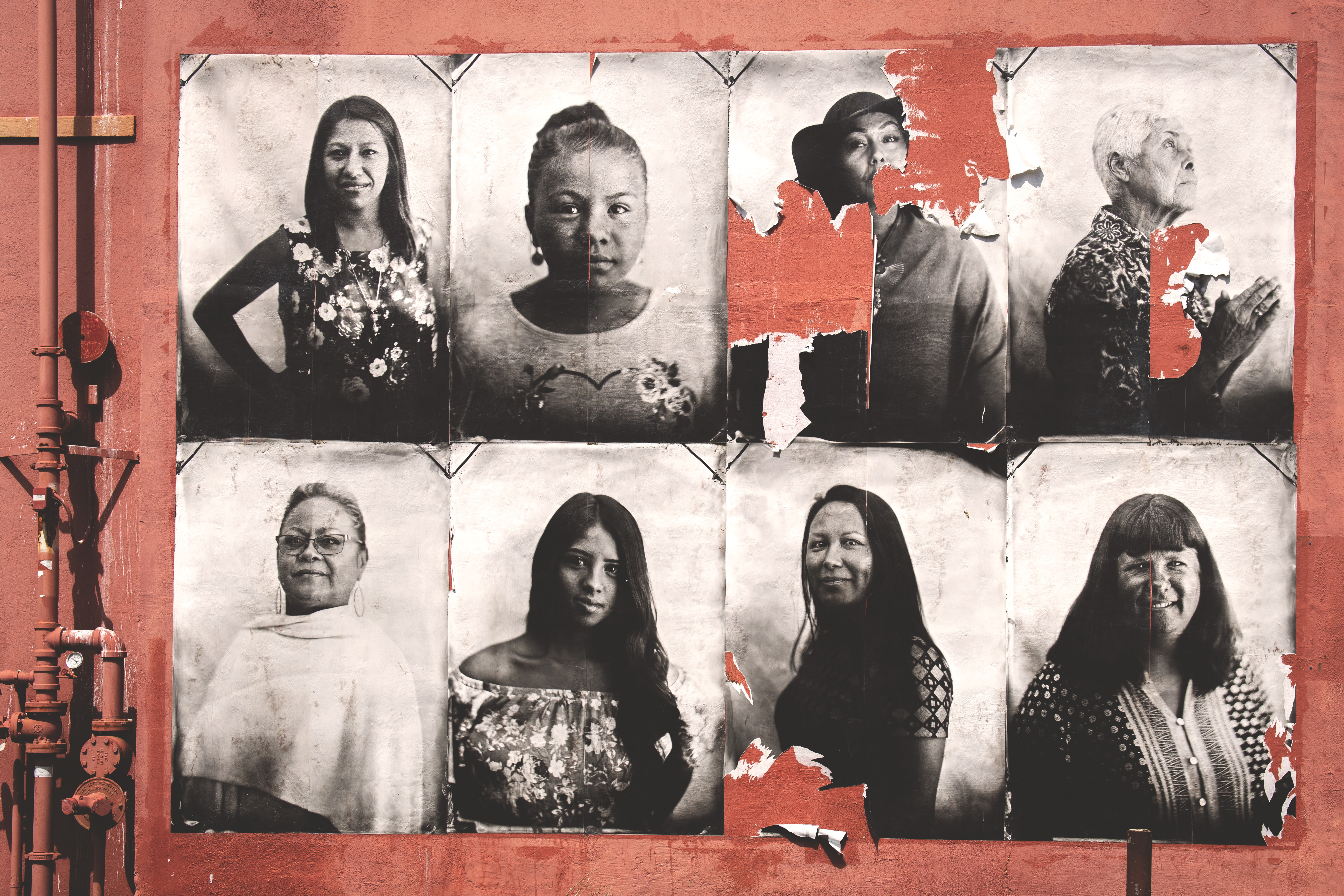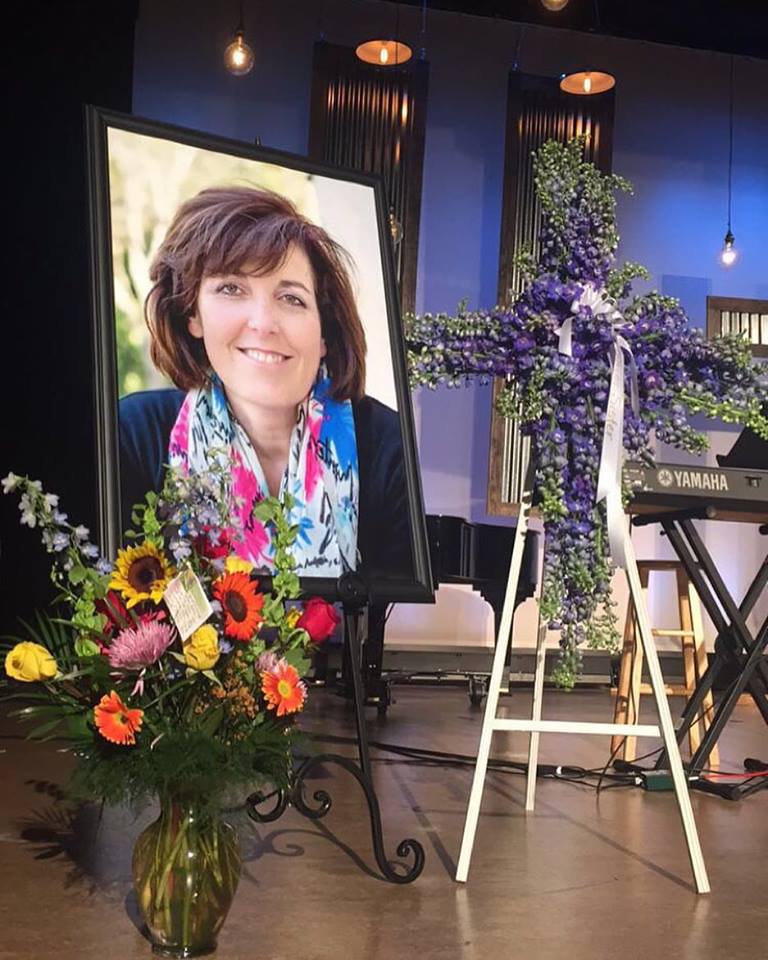“The presence of black and brown bodies doesn’t automatically make a space diverse. True diversity comes when people’s diverse cultures and perspectives are also welcome, and when those perspectives are welcome to challenge the status quo.”
My Daughter Thought She’d Get In Trouble For Coloring Me Brown Instead Of ‘Flesh’ – Ally Henny
Some people believe that racism does not exist anymore. They are mistaken. Especially when you speak to people of color, you will hear experiences that many of us have on a daily basis. When I was growing up I was around people that looked like me and around other people of color. I was not around majority culture people much. My experiences with white people were of people in authority and positions of power.
When I finished college I joined a ministry where the majority of people were white. And I was uncomfortable because I didn’t have many friends who were white and now I was serving along side of them. The thing that brought me comfort was that we were all Christians. Thus I believed that I would be respected and treated without prejudice. I was mistaken. I found myself experiencing painful moments towards my ethnicity and my story. It stung because I thought that other followers of Jesus would not treat others this way. Again I was mistaken.
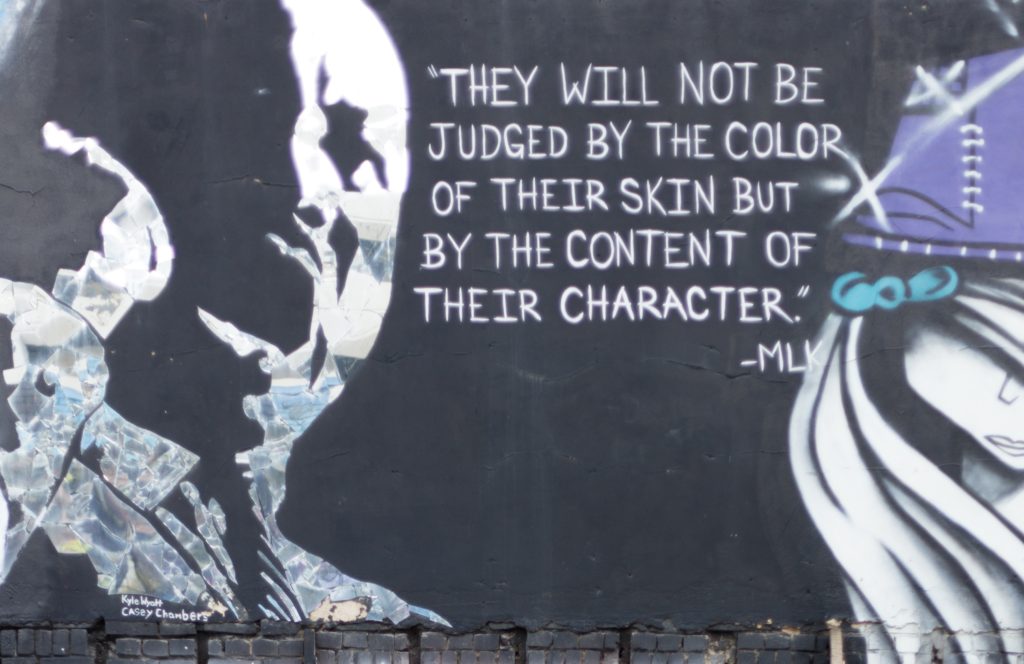
These experiences pushed me towards several things. One, the need to educate myself on ethnicity and race relations.
Two, to prepare my heart and mind through God’s Word, when facing these moments again. Because of my relationship with Jesus, I know I am called to love my neighbor, even those who have hurt me. (Let me be clear that this is not easy.)
And three, I am challenged to enter into relationships with majority culture people. To help educate others on race relations. To push toward racial reconciliation and to advocate for all ethnic groups, especially those who are marginalized.
In the past 5 years I have been learning from others, reading and praying. Educating myself on so much history I was unaware of. Reading and listening to podcast. Things that will help teach me about myself and other ethnic minority groups. And praying that God would lead me to open my mouth and use my voice to advocate for myself and others. Even when I am scared or uncomfortable.
I am still learning. I am still growing. I have also made mistakes. I have also discovered my own prejudices and needed to repent of them.
This brings me to someone I have recently been learning from, Ally Henny.
Ally is a writer and speaker. She is from Spring field, Missouri, has been married for 14 years and a mother to 2 daughters. She holds a B.S. in Psychology from Missouri State University. She is currently a full time student, pursuing her Master of Divinity from Fuller Theological Seminary, with an emphasis in Race, Cultural Identity, and Reconciliation.
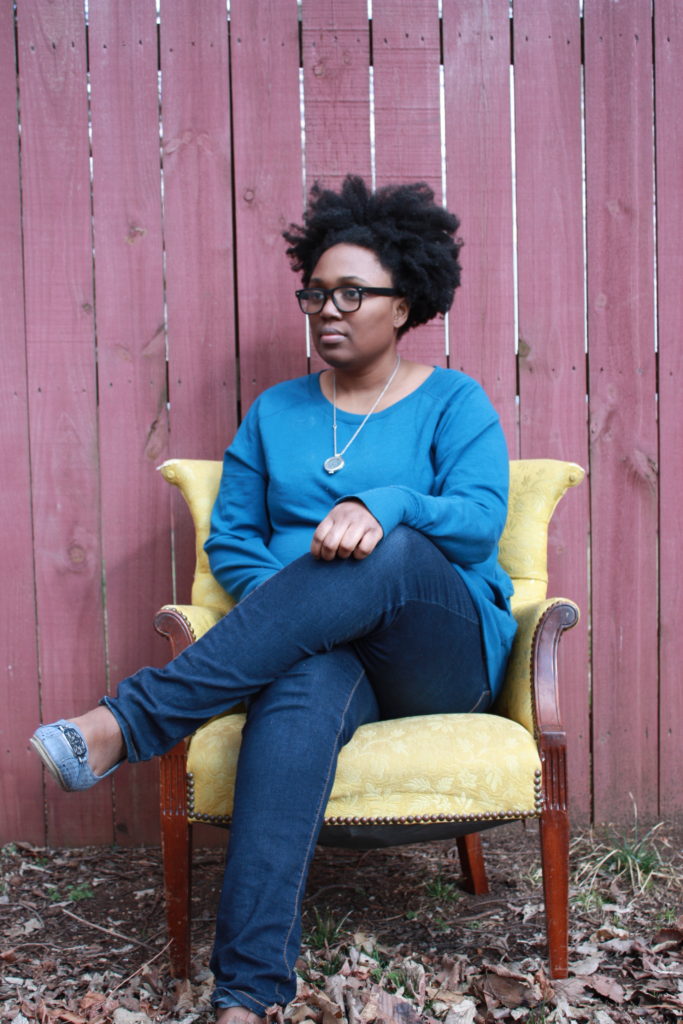
The first time I heard Ally was on the Pass the Mic podcast. In the episode called “De-Centering Whiteness in our Conversations”. In it she explains what bridge building and anti-racism work are. It impacted me how she explained these topics. I felt I was finally able to put into words what I have been trying to do, which is bridge building. Helping majority culture people walk into an understanding of race relations. Based on my experiences, stories, the students I serve with and their communities and mine.
I am intrigued by Ally and wanted to learn more from her. I have been following her posts on social media and I reached out to her on some of her thoughts. I was excited when she responded and even more when she agreed to an interview with me for my blog.
While getting to know each other we talked about a variety of topics. From her life as a seminary student to her interim position as an associate pastor at a church. Most of our conversation revolved around the topics of bridge building, anti-racism and solidarity.
Here is some of our conversation:
Ally can you tell us how you got started? Especially in the area of bridge building and anti racism work.
I grew up in a rural context, a town less than 10,000 people in West Central Missouri. There was a black community, black church, we had different cultural events. The black church was the center of the black community. It’s where I interacted with the black community the most. My grandma lived in a part of town where there were several black families. I grew up in a context that my home was black. Every space that I touched as child, that was a home safe space, was black. Pretty much everybody in those spaces were black. We engaged with the general culture but always through this black lens. Cause we were minorities, this town was, is more than 95% white.
But then I had this other aspect when I would go to school or in the rest of the community where there were no black people. I learned very quickly how to be in my context as a black person. And then recognizing well, white people are completely different than me.
Then I became even more intimately acquainted with that because I am married to a white man and his family is white. I say that to give my context, cause not everyone has this context.
So for me I have always been rooted and grounded in my blackness. And understanding who I am as a person then has allowed me to be in these contexts. Because there is a psychological warfare that goes with white normativity and white supremacy. There are ways we have to deconstruct and decolonize our though patterns. We need to rid ourselves of internalized white supremacy and internalize racism. Because there is so much white supremacy in our communities.
So this idea of bridge building, I have been in this aspect or mode in some way shape or form my whole life. I have been an activist bridge builder and now a hybrid of anti- racism and bridge building.
What sparked that for me rose with Trayvon Martin and the Ferguson uprising. My oldest daughter was an infant during the Ferguson uprising and I knew that was a moment.
I realized that I was seeing things that I had only read in history books. Things my parents had lived through and I knew I had to do something.

When ever my daughter reads about this time in history books. And she does the math on how old she would have been or how old mom and dad would have been. I wanted her to be able to realize, my mom and dad did something. They didn’t sit back, they did something. This is what pushed me to be a part of my mission to move into the work of anti-racism
I started out more in a bridge building tone. But bridges get walked on, get driven on, stepped on, pushed down.
That work is very important work. We need Bridge builders. Bridge building faces white people a lot more. Holding white peoples hands more. Helping them to understand. Walking them through it step by step and teaching them what they don’t know but should know. Bridge building work is birthing and talking care of spiritual babies.

Anti-racism isn’t that. Not that anti-racism work isn’t gentle or loving or done out of a heart to help, consider or walk with people. Anti-racism work is not white facing or not necessarily facing communities of color. It’s more saying this is a thing that is out there. At times it might be speaking to white people or other times people of color. It is saying, this is a thing to watch out for.
I don’t want to say I speak for black people or the community but the community speaks through me. I say things that everybody else is too tired to say. Or that everyone else does not have the time and resources to analyze. They know something is happening, so I put in the work.
I am able to communicate and give people language for things that they are experiencing. So that they can communicate to people and be able to speak the truth in their spears.
The center of my work is to give black people words to say to white people. Words to be able to stand in their own context.
I am thankful for all the white people that follow and support my work. My work is for them, in a sense that they will catch this work in some way whether it comes from me or a person of color.
My work is for people of color. To help them name their experience. People who have been influential for me have been people who have been able to name my experiences. Because you only live your life and you don’t know what other people experience. Sometimes you don’t know that others are experiencing what you are experiencing.
Whiteness will gaslight you into thinking there is something wrong with us because we have these experiences. Whiteness tries to gaslight us into thinking you are the problem and that you are too sensitive. When someone can say that happen to me and put language into their experience. That helps you know you are not alone.
A big deal to me is being able to empower women, especially black women, where they are. Empower them to be able to speak their truth. Not capital T truth. I am talking about our own individual truth, my truth is my experience. What I know to be truth based on my experiences.
I do encourage others to cling to The Truth, in order to walk in our truth. In order to know what is true for us, is also truth.

It’s important for black women to know what is true in our situation. Filter them through the lens of the Holy Spirit. Then He empowers us to speak to those mountains and say to those mountains be removed. The Holy Spirit lives in us. We are woven to the Truth.
In de-centering whiteness. Spaces that are full of whiteness, whiteness is the problem. Full of this kind of individualist, dominating, domineering, normative, doesn’t care about other context and other people. In dealing with that aspect, to effectively disown whiteness, we do that by knowing and being secure in who we are as black women and women of color.
I feel it is so critical for us to have a revelation and an understanding of who we are in Christ. And how God has fearfully crafted us. So that when we are confronted with whiteness we are able to stand in the truth. Because whiteness is not the truth, it’s a lie, it’s a myth.
White people need to divest in whiteness too. It’s not about skin color, it’s a mindset. That is not the truth and we need to reclaim what the truth is and speak the truth.
Ally, in de-centering whiteness, do you think we need solidarity among ethnic minorities?
I think that we need solidarity. Especially in the future, minorities will be the majority. The strategy of whiteness has always been to divide and conquer. The lack of solidarity comes because of whiteness.
Solidarity requires divestment in whiteness. If we are going to have solidarity we all have to stop trying to be white. We all have to stop saying, ‘I am white and want the same benefits as white people.’
What type of solidarity can we have among ethnic minority groups?
Minority groups having their in group hard conversations. But then us as minorities having hard conversations. Realizing that our attitudes towards one another were created in large part because of whiteness. What we believed about one another, what whiteness told us about one another.
Because America is racist and everyone wants to be color blind but we are not color blind we are color driven. We even attribute negative experiences with another person of color. We have our own lateral oppression that we do. We have our own hangups and habits as minorities.
As we strive for solidarity we can retain our individual collective identities. And we can also invest in a collective identity as minorities. This can help us understand that our enemy is not one another. Our oppressors are not one another. Because if we don’t, white people are just watching us fight one another. And none of that is dismantling anything.
If we were able to get the revelation that we are all siblings and that we are all victims of the same oppressive system. It is the same system it just oppresses us differently. Once we realize we have a common interest than that will be helpful.
How can we do bridge building work and anti-racism work together?
Each minority group should recognize that other minority groups are oppressed. It might look differently but it still sucks. Same experience just manifested differently. Fighting one another on who is more oppressed what does that matter because oppression still sucks.
It is like having a baby, regardless if you were in 5 hours of labor or 25 hours of labor that junk hurts. Regardless of the amount of time you spent on having a baby that stuff hurts. So we can try to compare but we can’t because it’s the same experience it’s just manifested differently.
Whiteness wants us to fight one another over stupidity. We really need to be having the important conversations on how be can combine power. How can we leverage the privileges that some ethnic minority groups have. To give a voice to other ethnic minority groups that don’t have it.
We ended the interview by praying for Ally. For God to continue to use her to shed light into these hard but necessary conversations.
I want to thank Ally for her time and this interview. Thank you for your wisdom, knowledge and your continuous work. It is a gift that benefits all ethnic minority groups and women of color like me.
You can learn more about Ally and her work on her website allyhenny.com
Read some of her articles on The Witness website.
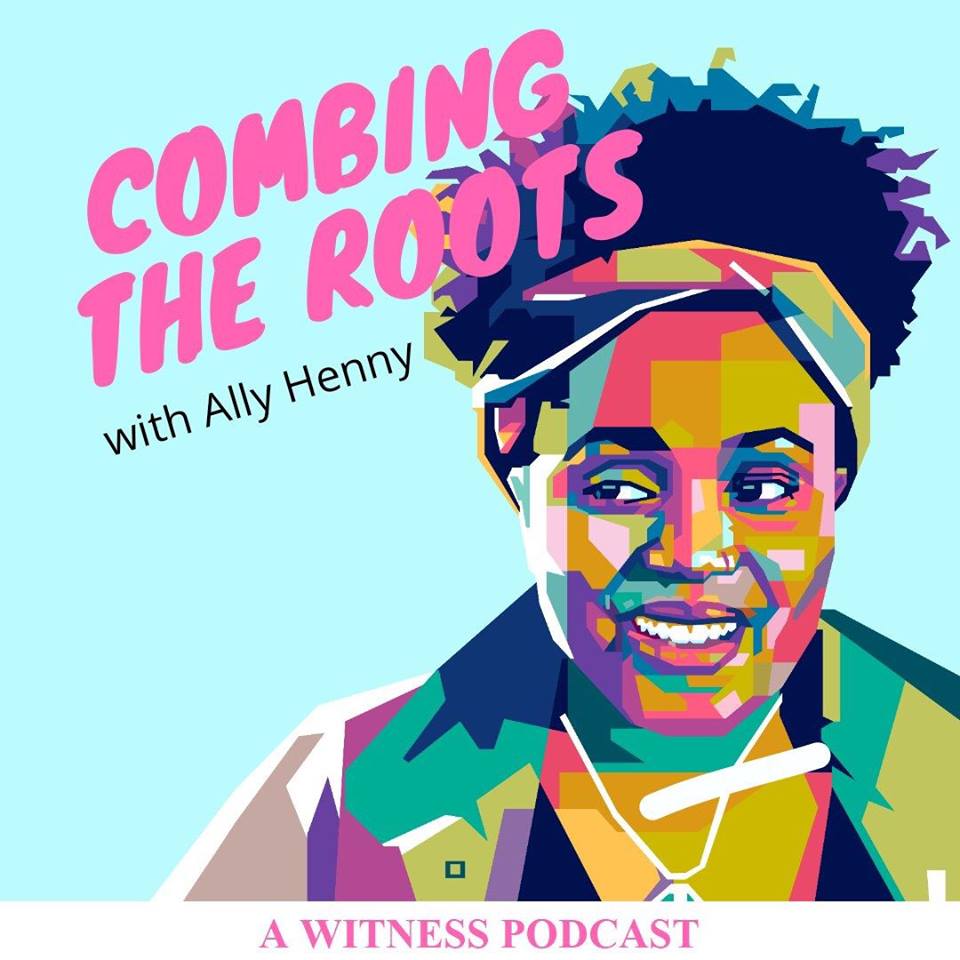
You can also follow Ally on social media, on Face Book, Instagram and Twitter. And since our interview her podcast has launched. You can hear more about her work and thoughts on bridge building and anti-racism on Combing the Roots with Ally Henny.
I leave you with another amazing quote by Ally.
Anti-Racism is more than bringing black and brown folks to the table. If you’re not actively listening, learning from, and implementing the strategies that black and brown folks give, you’re not anti-racist.
-Ally Henny
Stay tuned to the next word…

